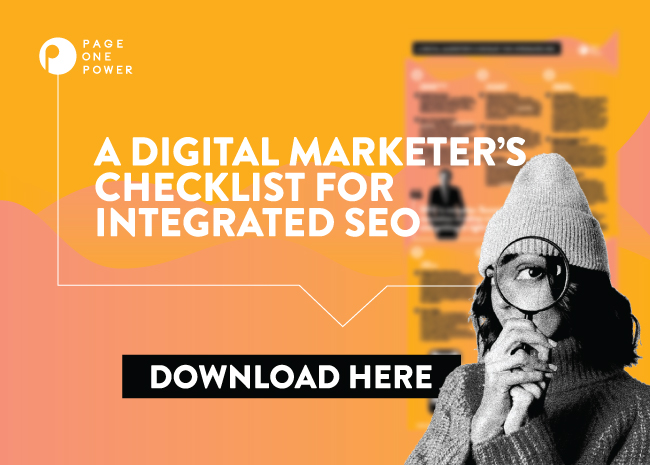WHAT IS LINK BUILDING

Link Building
/ liNGk bild•iNG / verb.
Link building (also known as link-building and linkbuilding) is the practice of promoting your website to other website owners with the primary goal of securing a link (hyperlink) on their site to your page.
WHY DO BUSINESSES INVEST
TIME AND RESOURCES IN
LINK BUILDING SERVICES?

If you have a website and want traffic from search, you need to consistently secure good links from relevant websites. It means you need link building. Link building requires strong social skills, excellent communication, persistence, and creativity. It’s marketing, sales, and psychology combined.
WHY WOULD A BUSINESS INCLUDE LINK ACQUISITION IN THEIR MARKETING?

- Links are valuable in search engine optimization (SEO).
Links are a strong ranking factor in Google’s (and other search engines’) search algorithm. - Links are valuable in audience development.
Securing a link on another website gives another audience direct access to your website, and can pass referral traffic. - Links are valuable for marketing.
A link is a vote of confidence from one website to another. Each link creates a positive connection and develops a relationship.
Links are vital to increasing traffic online. A website without links isn't going to get any traffic — from search, or from other websites.
That’s the short, nitty-gritty explanation. Now let's take a deeper look.
A LINK BUILDING BASIC OVERVIEW

The What:
Link building is the process of securing a link on an independent website back to your own site (or a client's site).
The Why:
Google search is based around links. The more links you have from relevant and authoritative websites, the better your website will perform in search for relevant queries. Links also drive referral traffic and help develop relationships.
The How:
The best SEO companies use customized strategies with diverse tactics designed to convince another website it is in their — or their audience's — best interest to link to a page on your site.
The When:
Link building gained popularity with the rise of Google in 1998, and is still vital today.
The Who:
SEOs, marketers, and website owners use link building to increase traffic to their site through search.
THE VALUE OF LINK BUILDING

Links are fundamental to the existence of the web.
In fact, it’s called the web due to links — links are the ‘webbing’ that combine the millions of websites into one entity, creating the interconnected web.
There are two primary reasons marketers and businesses should be concerned with links:
- Links are the primary means of online navigation, directing humans from one web page to another. Humans inherently associate links as a signal of authority and trust.
- Search engines (e.g. Google) consider links a "vote of confidence" from one website to another, and use links as a signal of authority, trust, and relevance.
Links are valuable for marketing, audience development, relationship building, and search engine optimization.
NAVIGATING THE WEB
Links are the primary means of navigating the web.
There are essentially three ways to navigate to a page:WITHOUT LINKS, THE INTERNET WOULD BE UNNAVIGABLE.
- Bookmark a page.
- Type the full URL path into your browser.
- Click a link.
Links account for the vast majority of web navigation. Whether in social media, search, or browsing a popular site like Reddit, odds are you’re clicking links to move from one page to another.
Memorizing URLs and creating thousands of bookmarks simply isn’t practical.
Links power the web, and are absolutely critical to search, website architecture, user experience (UX), audience development, and human accessibility.
LINKS AS A RANKING SIGNAL
SEARCH ENGINES USE LINKS AS A CORE RANKING SIGNAL.
Search is responsible for much of the internet's traffic — one study by Conductor reports more than 60%. When Google unexpectedly crashed in 2013 40% of Internet traffic dropped.
Search is a primary channel of traffic for most businesses online.
An entire industry exists around optimizing websites for search, improving their performance: search engine optimization (SEO).
Link building is an important part of SEO services. Without links, websites can’t rank in competitive search queries.
Google’s core system, which led to their dominance as a search engine, is PageRank. PageRank is Google’s algorithm that places value on links, and affects websites' search ranking.
Humans and search engines both place considerable value on links, and securing links online requires sustained, focused effort.
INTENTIONAL LINKS
Quality links don't happen by accident.
GOOD LINKS REQUIRE INTENTIONAL EFFORT.
Google often tells website owners to “create great content.” You need to be creating pages that provide value to your audience.
But valuable content requires promotion. If you want to secure the links your website deserves, you need to be intentional about promoting your pages to websites where your links make sense.
Links don't happen, otherwise.
According to a 2015 joint study by BuzzSumo and Moz, the majority of posts online have zero external links (links from other websites).
The majority of content online has no real chance to receive significant search traffic, which is responsible for the majority of traffic online.
SEOs know the impact a few natural links from quality and relevant websites can have. It no longer takes hundreds or thousands of links to rank. The commodity of a single link has vastly increased, giving quality websites even more power within their respective industries.
In order to secure a link, you need to demonstrate value in a persuasive manner.
Further Reading
- The Value of Links — Search Engine Watch
- Content, Shares, and Links: Insights from Analyzing 1 Millon Articles — Moz and BuzzSumo
- Can You Rank in Google Without Links? New Data Says Slim Chance — Moz
- The PageRank Citation Ranking: Bringing Order to the Web — Larry Page and Sergey Brin
- Organic Search is Actually Responsible for 64% of Your Web Traffic — Conductor
- Google Goes Down for 5 Minutes, Internet Traffic Drops 40% — CNET
HOW SEARCH WORKS
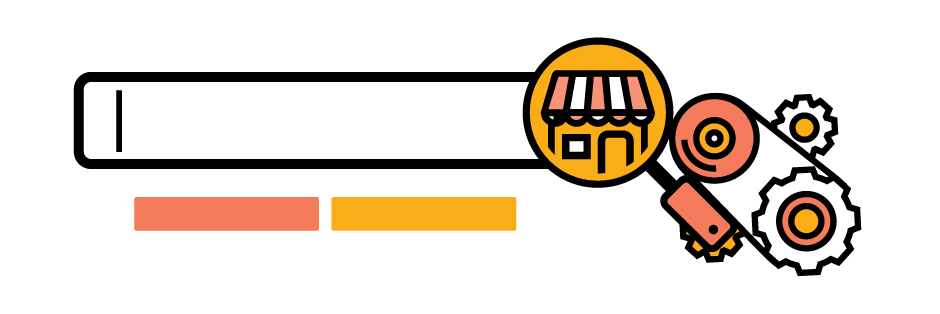
Links are important to humans, marketers, and internet usability. Google search is also reliant upon links, both for ranking and crawling.
Let’s take a deeper look at how specifically search works.
Google crawls the web by following links (again making search reliant upon links), creating an index from the pages they find. When you use search you're not searching the live web, but rather Google's index of the web.
Google stores their index in numerous data centers, which are incredibly large and complex.
Google's last reported index size is roughly 130 TRILLION pages, taking up over 100 million gigabytes.
How does Google know which pages to return for a given search (query)? How do they determine which pages are relevant? How do they rank and order those pages?
Google uses algorithms, both machine learning and human coded (by Ranking Engineers), to determine the most relevant results.
There are over 200 ranking signals used by Google's search algorithm. No one knows precisely what these signals are (or even the strength given to each signal) — though many speculate.
SEO CATEGORIES
There are three different categories of optimization you can perform to improve your website in search:
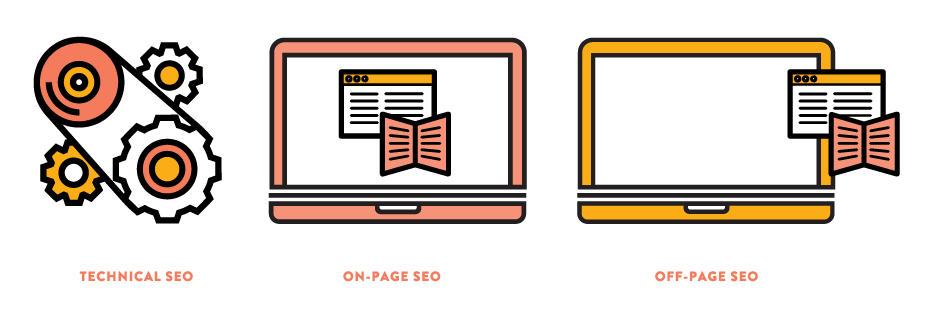
Technical SEO is the optimization of technology involved in Google crawling and indexing your site. This includes domain architecture, technology stack, robots.txt, server codes, redirects, page speed, internal links, etc.
On-page SEO is the optimization of the content and HTML of your site's pages themselves. This is a more granular view of the elements on the page, which help Google understand the topic and intent of the page. This includes the words on the page, the URL, title, header tags, images, meta tags, etc.
Off-page typically refers to links, although it can also include citations.
Technical and on-page SEO are crucial — you’ll never rank to your site's full potential without clean, optimized on-page and technical SEO. Fortunately you should largely have control over these elements, which are the direct result of how you build your website and its platform.
Technical and on-page SEO both become much more complex as you scale a website (increasing the number and size of pages), and involve more technology.
Off-page is the element you least control in SEO. It requires convincing another website to provide positive signals to your site, which doesn’t happen without a good cause.
Links have perhaps the most ranking value of any single signal. They’re absolutely critical to ranking in competitive search.
Securing a link from an authoritative website in a relevant manner isn’t easy. Google’s original algorithm succeeded because it used links as a core ranking signal, which no other search engine used at the time.
HOW GOOGLE MAKES MONEY
Google’s concern is the same as any business: making money.
Google's primary source of revenue is from search. In fact, before Google split to become Alphabet, search was responsible for the majority of revenue — despite many successful side projects (which have now become their own businesses, under Alphabet).
How does Google make money from search, which is free? With advertisements, at the top or bottom of the search results page. This is an incredibly big business. Google reported 74.5 billion dollars in revenue in 2015, with a consistent growth year-over-year.
To ensure they continue to make money from search, the core of their company, Google has to do two things:
- Create great user experiences (UX)
- Continue to drive people to click ads

To better understand search, let me show you a search for 'coffee':
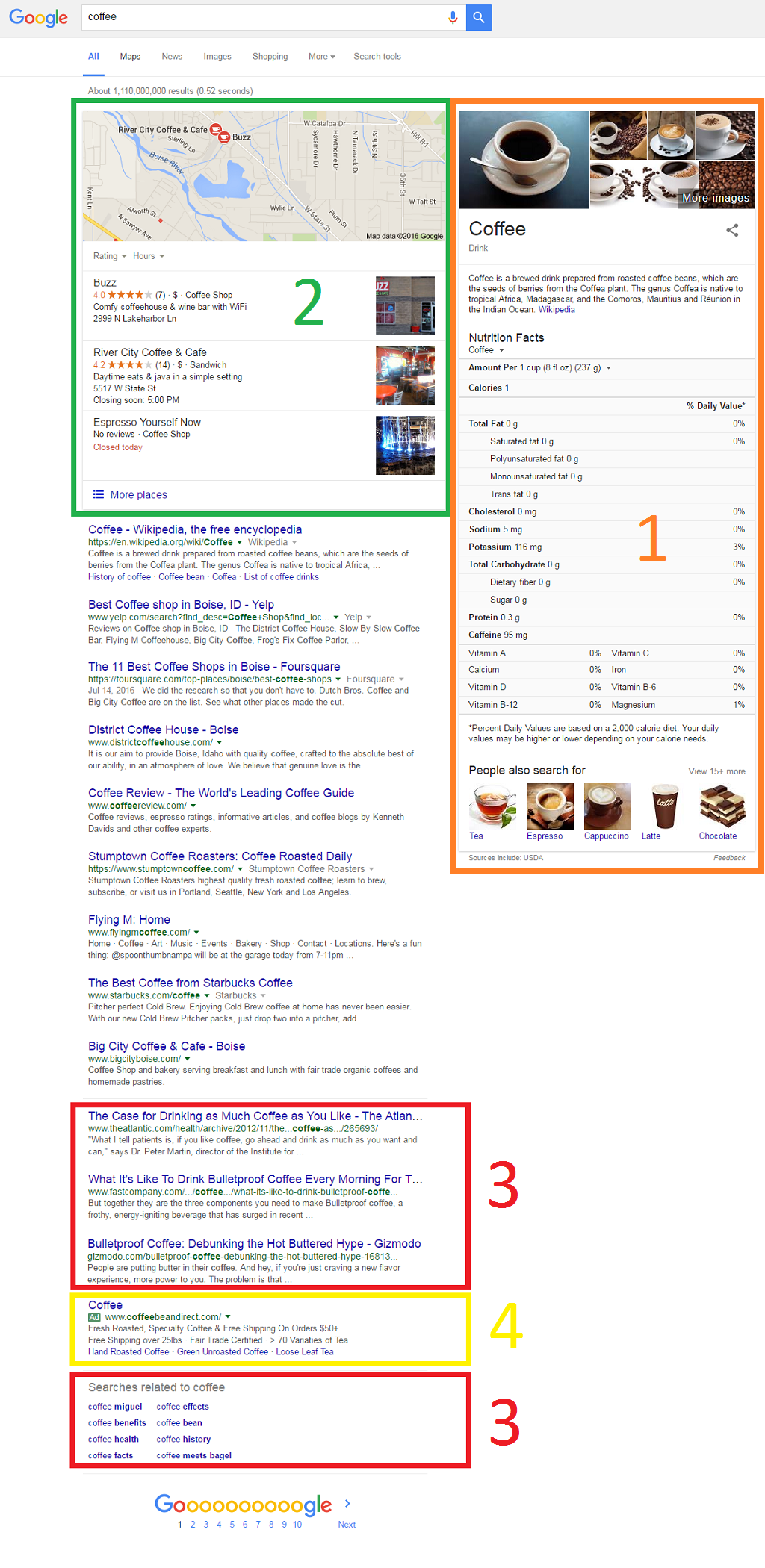
I highlighted the Knowledge Graph in orange, the local pack in green, additional search features in red, and the ad in yellow. Let's take a look at each element.
The Knowledge Graph (Orange)
The Knowledge Graph is lGoogle's attempt at explaining real-world information, instead of relying upon another website to answer searcher needs.
The Local Pack (Green)
The Local Pack is Google satisfying local and mobile searchers.
Additional SERP Features (Red)
The additional SERP features represent Google’s attempts at creating an overwhelmingly great user experience, no matter what the intent of the searcher. In the case of this search, they pull in publications about coffee and searches related to coffee.
The Ad (Yellow)
The advertisement represents Google's revenue. Ads are how Google makes money within search.
Anything not highlighted has made it into the results using at least some search engine optimization, including clean technical structure, optimized on-page content, and link.
SERP TAKEAWAYS
Take a moment and appreciate just how much Google puts into search quality — there’s a wealth of informational elements designed to satisfy searcher intent, without even having to click away from Google.
[Coffee] is a completely generic term — often referred to as a 'head term' within SEO — with no clear intent. Yet no matter what the intent of the searcher, the odds are good this result page will answer it. We have real-word knowledge (Knowledge Graph), nearby coffee houses (Local Pack), articles from publications, additional search suggestions, and nine organic results to meet additional intent.
Without much information to work from, Google is able to create an amalgamation of results to answer a variety of searcher intents.
This result also doesn't include personalization, which is common in search. If you consistently search [coffee], you'll see different results appear here.
Also, notice how discreet the ad is; sitting at the bottom with nothing but a green "Ad" to differentiate it from the rest of the search results.
Finally, consider the fact that every website not highlighted wouldn't be in the search without the help of SEO.
Google’s staggering revenue flows from search. SEOs work to increase website's ranking in relevant searches. The highly competitive, lucrative search terms are dominated by SEO efforts.
Google has a vested interest in managing SEOs. If we're able to manipulate low-quality websites into search, we could affect their bottom line, no matter how many non-organic elements they include in search.
BETWEEN THE LINES
OPTIMIZATION VS. MANIPULATION
As SEOs it’s important for us to always start with searcher intent. Before we optimize a page for search, we should first consider if the page actually belongs at the top of search results. If it doesn't, our efforts might be wasted for two reasons:
- NO LONGEVITY
Google wants to return the most relevant results for searchers. Any wins we experience might be short term if our page doesn't deserve the rankings. - POOR CONTENT
SEOs' ability to rank subpar pages has largely diminished in the last few years, and can lead to penalties if taken to extremes (manipulation).
SEO is deeply strategic by nature: identifying opportunity within an industry, performing competitor analysis, implementing and testing changes, tracking results.
It can be easy to push the bounds of optimization, but it's more important now than ever before to stick to SEO best practices. Follow Google's guidelines to both the letter and the spirit.
The easiest way to manipulate a website to the top of search is to build manipulative links, since links have the highest impact on ranking.
Google works hard to keep their search results clear of these manipulative practices with both manual and algorithmic (Penguin) penalties. These penalties will remove a site from search.
This means we have to only build meaningful links that improve human experience on the web. We need to secure real, relevant links.
FURTHER READING
- How Search Works, The Story — Google
- How Search Works — Google
- How Search Engines Operate — Moz
- Data Centers — Google
- What is Link Building, and Why Does it Matter? — SEW
- The Beginner’s Guide to Techincal SEO — Quick Sprout
- On-Page SEO: Anatomy of a Perfectly Optimized Page — Banklinko
- On-Page SEO Factors — Moz
- Mega-SERP: A Visual Guide to Google — Moz
LINK SIGNALS AND METRICS:
QUALITY ASSURANCE
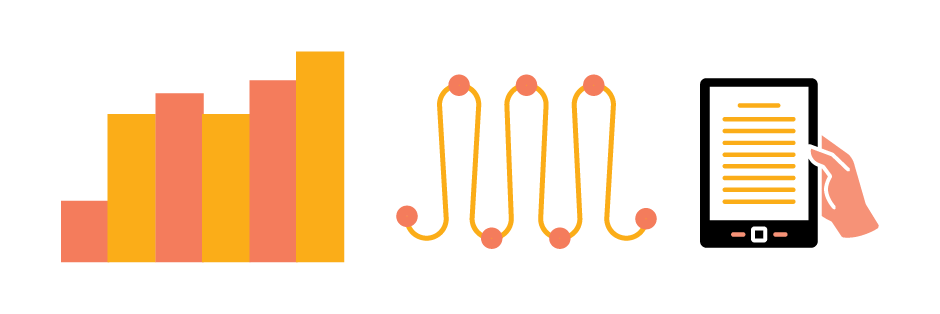
All search engines use links as a core ranking signal within their search algorithms.
However:
MORE LINKS ≠ MORE RANKINGS.
Plenty of people have tried to game Google’s search algorithm over the years. In turn, Google is constantly improving the relevance and quality of their search results, finding new ways to cut through the noise and rank the best and most relevant results.
Google improves their understanding of links with major algorithmic updates. Specifically, with machine learning.
GOOGLE'S LINK ALGORITHM IS NICKNAMED PENGUIN.
In link building every SEO must ask, “will this link be useful now, and will it continue to provide value in the future?”
There are a variety of ways to build good links that will continue to have a positive impact on your website.
At Page One Power, we look at four key metrics to determine link quality:
- RELEVANCE
TO AUDIENCE - HUMAN
VALUE - AUTHORITY
& TRUST - TECHNICAL
CONSIDERATIONS
RELEVANCE IN LINK QUALITY
It’s no coincidence we lead our list of link metrics with relevance.
Google often talks about relevance: in their results, in satisfying user intent, and meeting user needs.
Back in 2012 an ex-Googler actually said in an interview with James Norquay that "relevance is the new PageRank".
We determine relevance at Page One Power by asking pertinent questions, before we secure a link:
Would I be excited to show this link to a client? To a family member? To another SEO?
Is this link relevant to the surrounding context? To the entire page? The entire domain?
HUMAN VALUE OF LINKS
Quality links add value to the web by improving user (human) experience. We want every link we build to be valuable to:
- The site linking
- The audience
- And your website.
If we adhere to creating links that are valuable for all parties, then we make the web a better place — while improving the rankings of our client's websites.
AUTHORITY & TRUST
At the core of the original PageRank algorithm are authority and trust. The more links you have to your site, the more valuable your own links are. This is because Google counts links as a sign of authority and trust.
Therefore, as you accrue more links you accrue more authority and trust. Although only search engines have access to the PageRank Algorithm, there are a few tools that let us measure the authority and trust of a website:
- Majestic’s Trust & Citation Flow
- Moz’s Domain & Page Authority
- How Well a Site Ranks in Google
Combining all of these metrics — along with our experience and expertise — ensures we’re building links that are valuable.
TECHNICAL CONSIDERATIONS
As SEOs, technical considerations are always top-of-mind. That doesn’t mean we’re solely guided by the technical considerations, just that we’re aware of the impact.
We'll avoid a link that might have search value but falls short on our other metrics (relevance and human value). We'll also secure a link that may not have much, if any, SEO impact (nofollow links), but that advance the reputation, reach, and value of a site.
We want links that both humans AND search engines will reward. Here are the technical considerations of a link:
- Crawlability
- Indexation
- Tag attributes
- Anchor text
- Link placement
- Non-page element
Every link we build is heavily scrutinized.
FURTHER READING
LINK BUILDING STRATEGY:
DEVELOPING A CAMPAIGN
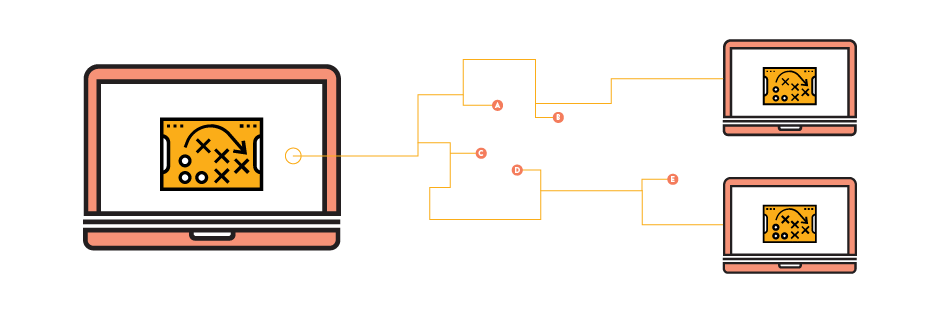
The terms “tactic” and “strategy” are often used interchangeably in the SEO community, despite having different meanings.
In link building, tactics are the method used to secure links. Strategy is the plan designed to accomplish your goal.
Before you determine tactics, you need a strategy.
There are hundreds of various link building tactics including broken link building, link reclamation, content promotion, resource link building, influencer outreach, guest blogging, to name just a few.
A creative SEO or marketer can always secure links.
It's not enough to secure links for the sake of links. You need to know why you're securing links.
What pages are you going to build links to? What keywords do the pages target? How competitive is the niche? What opportunities exist?
Answer these questions, and you'll have a link building campaign strategy. You'll know not only how you'll build links (the tactics), you'll know why (the strategy).
Here is the research and analysis you should do to form your link building strategy:
- Backlink Analysis
- Linkable Asset Analysis
- Keyword Research
- Niche Analysis
- Review
Strategy is rarely discussed in SEO because each strategy varies client-to-client, website-to-website. Each campaign plan (strategy) must be customized to your goals, assets, resources, and opportunities.
There are no cookie-cutter solutions. There are no one-size-fits-all scalable solutions.
Instead, you have to analyze the unique situation of the website and make an informed decision to accomplish your goals.
Let's cover the basic research and analysis you should perform in order to create a strategic plan to guide your link acquisition.
BACKLINK ANALYSIS
The first step to create an intelligent strategy is to understand your situation. In link building, that means your backlink profile.
Your backlink profile is the composition of all links to your website and pages.
A backlink analysis is fundamental in creating a link building strategy: you need to understand the quality and quantity of links to your site.
There are numerous tools that will help you discover what sites and pages link to your own website. These are typically referred to as "backlink explorers".
Popular backlink explorers:
These tools specialize in helping you discover links to your website and pages.
The process of backlink profile analysis is to review:
- How many other websites link to yours (commonly described as "referring domains").
- The quality of the referring domains.
- Which pages on your site have received the most links.
- The quality of those links.
- Your website's total number of backlinks compared to the number of referring domains.
- The anchor text profile of your backlinks.
Depending on the age and popularity of your website, as well as the link economy in your niche, your backlink profile can vary greatly.
For beginners, I recommend these guides to help you through a backlink audit the first time:
- How To Review Backlinks with Majestic the Backlink Explorer.
- Link Building 101: How To Conduct A Backlink Analysis.
I strongly recommend performing this same analysis on your competitors, as well. We'll cover more of this in the niche analysis stage.
Once you have a strong understanding of your own website's backlink profile, you're ready to perform a linkable asset analysis.
LINKABLE ASSET ANALYSIS
Which pages you build links to is one of the most critical elements in link building.
You need to be strategic about which pages you secure links to. These pages need to align with your goals.
Unfortunately, it's very rare that you can build links directly to your converting or money pages, for two reasons.
- Other websites rarely want to link to product and service pages.
- Product and service pages only capture one type of search traffic: purchase intent.
If you only target people actively searching to buy a product or service in that moment, you miss a large part of your marketing audience.
This is typically known as the marketing funnel.
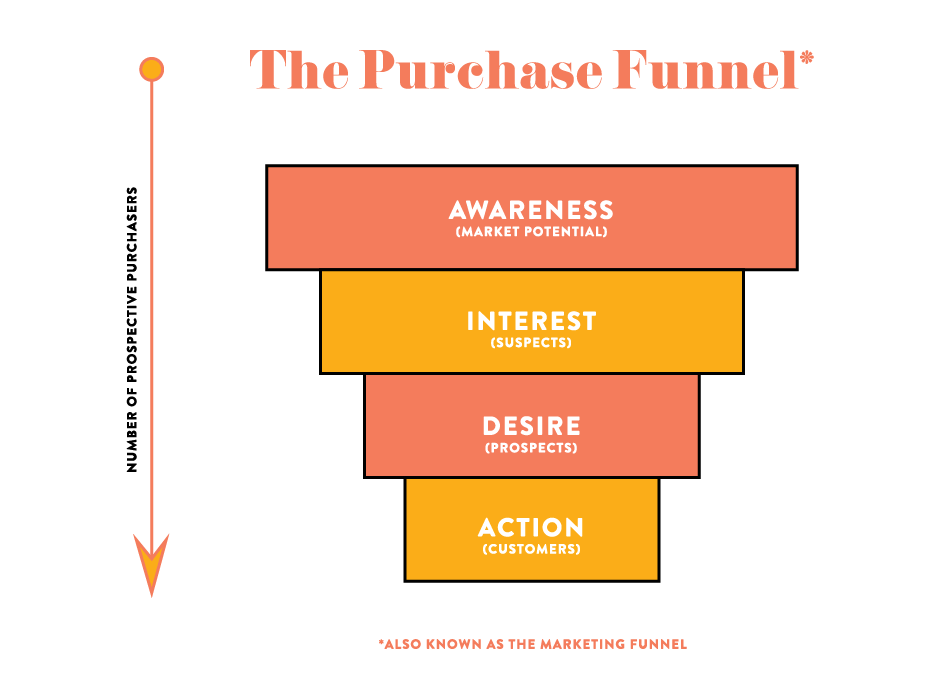 This is typically known as the marketing funnel.
This is typically known as the marketing funnel.
In order to successfully build links across your industry, you'll need pages SEOs refer to as "linkable assets".
Linkable assets are pages on your website that serve value to your audience, niche, and community.
These pages can offer value in a variety of manners. They can be guides, lists, videos, tools, resources, events, sponsorships, testimonials, etc.
You want to find pages that other websites would want to link to if they were aware they existed.
Your linkable assets should:
- Offer compelling value and create link opportunity.
- Provide an opportunity to build customers and clients.
It won't always be a direct opportunity to create customers or clients, either. Remember our marketing funnel above; often, linkable assets target the awareness and interest part of the funnel, helping create brand awareness and affinity.
Finding linkable assets often boils down to locating pages that are popular with your audience, and offer good answers for commonly searched phrases in your industry.
Often, you can locate these pages by reviewing:
- Your top shared pages (with BuzzSumo).
- Your top visited pages (with Google Anlaytics).
- Your top linked pages (with a backlink explorer).
For beginners analyzing linkable assets for the first time, I recommend:
- Three Simple Steps To Find Link Worthy Pages.
- How To Find Linkable Assets on Large Enterprise Sites.
- Link Building Isn't Magic: The Importance of Being Link Worthy.
Your goal in this stage of your research and analysis is to find pages you can successfully build links to, and serve your business's goals.
KEYWORD RESEARCH
Keyword research is a vital piece of any SEO strategy.
You need to identify keywords important to your industry and website. How are people using search to find information about your industry?
Keyword research identifies the important words your audience uses to search online.
Keyword research is directly related to the search results for which your website ranks. Optimization is core to SEO, but you can't optimize unless you understand the terms you should be optimizing across your site and pages.
There are numerous tools to help you perform keyword research:
- Adword's Keyword Planner.
- SEMrush.
- Moz's Keyword Explorer.
- Ahref's Keyword Explorer.
- Keyword Snatcher.
For link building, your goal in keyword research is to identify:
- Keyword themes important to your industry.
- The pages on your site tailored to these keywords.
- Other sites with overlapping relevance in your keyword themes.
- Content opportunities within identified keyword themes.
Resources to help beginners learn keyword research:
- Competitor Keyword Research Using SEMrush.
- Moz's Keyword Explorer Walkthrough.
- Keyword Research for SEO: The Definitive Guide.
- The Beginner's Guide to SEO: Keyword Research.
- How To Do Keyword Research NOW.
This is a deep topic you can spend a considerable amount of time on in SEO. For link building, I recommend focusing on the pages you plan to build links to (your linkable assets).
NICHE ANALYSIS
Analyzing your industry, niche, and competition is vital to every link building strategy.
It's not enough to understand the performance and goals of your own website. You need to understand how your competitors are achieving their goals, as well as the communities and opportunities across your niche.
It's time to see how you stack up to the competition.
A niche analysis is a review of your niche, industry, and competition.
You've learned how to perform keyword research, backlink analysis, and linkable asset analysis. Now do the same on your competition.
Your goal is to learn:
- Which keywords are driving traffic to your competitors.
- Competitors' pages with the most links.
- The types of sites that link to your competitors.
- How your competitors are securing links.
- Active communities within your industry.
You need to understand what's led to success for the competition, relationship opportunities across your niche, important link tactics, and the general linking environment.
REVIEW AND CREATE STRATEGY
There is no formula to create a winning link building strategy.It takes dedicated research and analysis to determine opportunity, resources, and challenges to achieving set goals.
If you've invested the time and energy into analyzing linkable assets, backlink profiles, keywords, and the competition you should have a clear understanding of the project.
Now it's time to create your link building strategy.
Link building strategy is the plan you create to achieve your goals and meet project expectations, with stated resources.
There's nothing left to do but pull the pieces together to see the big picture.
Here's what you should review before launching a campaign:
- Website History:
- Backlink Profile.
- Linkable Assets.
- Industry Keywords.
- Competitive Landscape:
- Important Keywords.
- Search Competitors.
- Competitors' successes.
- Niche linking environment.
- Relationship opportunities.
- Link Opportunities:
- Unique Business Value.
- Existing Relationships.
- Ongoing Initiatives.
FURTHER READING
- SEO Link Building Strategy: Goals, Resources, and Opportunities — Page One Power
- Link Building Campaigns: Strategy Development (2017) — Page One Power
- Link Strategy: Why We Don't Chase Authority (Only) — Page One Power
- What Is Link Building? Strategies and Examples — Moz
- Every Link Building Tactic you Need to Know in 2016 — SEJ
LINK BUILDING TACTICS:
TIPS TO SECURE LINKS
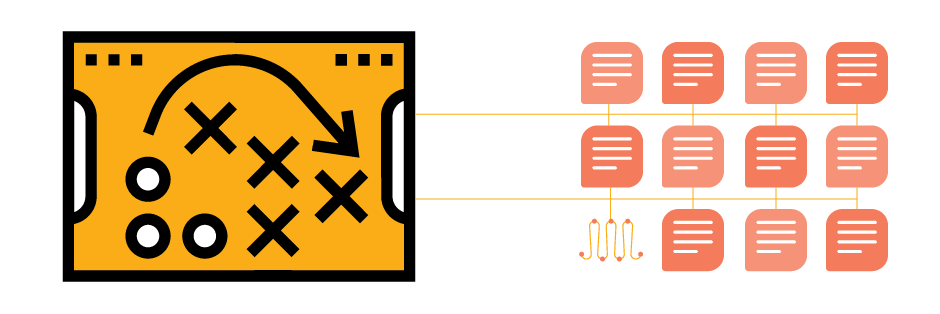
Manual link building is human-to-human marketing, promoting your page to another site owner with the goal of securing a link.
To have meaningful and lasting value, links must be: editorial, relevant, and useful.
If you include these three elements in your link building process, you'll secure valuable links. Links that will help both your marketing and search engine visibility.
But how do you secure these links? There are a thousand different methods, often referred to as link building tactics.
Let’s look at a few common examples of how to secure quality links. Typical ways to create value — and thus links — include creating resources valuable to your industry, content marketing, and contributing to your community.
LINKS THROUGH RESOURCES
Creating industry-valuable resources is a fantastic tactic to secure links.Online resources take a variety of forms: curated lists, tools, complex guides, often-needed documents, and more.
The value is very straightforward: create a page that serves as a valuable resource to your market, niche, and community.
SEO can inform the creation of a resource page through keyword research, competitor analysis, as well as backlink analysis.
Once the resource is created and live, you promote the page across your niche. Promotion should specifically target sites and pages that link to similar niche resources.
The simplistic step-by-step process for building resource links:
- Niche research to identify a gap.
- Analyze interest and link opportunities.
- Create the resource, focusing on user value.
- Targeted outreach with clear messaging to explain the resource’s value in order to obtain quality links.
- Update an old or dead resource to capture already existing links (found through research).
- Start a fresh outreach campaign with an already existing, but under-performing resource.
- Find links to similar resources and inform site owners, suggesting your resource.
- Find broken links, inform site owners, and suggest your resource as part of the fix.
LINKS THROUGH CONTENT
Contributing content to relevant publications, blogs, and websites is another common link building tactic.
You provide valuable content in return for exposure to a new audience and a link back to your site.
Examples of content types commonly used:
- A blog post
- An interview
- An infographic
- News coverage
- Or a video.
The typical process to secure a link through contributing content:
- Indentify blogs, publications, or industry-specific news sites.
- Pitch your content to the appropriate contact.
- Create the content.
- Edit the content as needed.
- Send the content for publication.
- Work with editor as needed.
- Monitor the results of the publication.
The content should provide you an opportunity to link back to your own site, both as an embedded resource within the content and as part of the bio to explain to the audience who you are.
This link building method should be used to target high authority websites within your niche. It’s a slower method of link building, but can create truly great links and high visibility.
It's also a fantastic method to foster relationships, establish an audience, and build a reputation across your industry.
LINKS THROUGH COMMUNITY
Active engagement in your community is another common tactic to earn quality links.
No company should operate in a silo. As you build relationships across your industry, your site should naturally accrue links.
Relationships and community involvement isn't something you can manufacture or manipulate for the sake of a link alone. But, if you're active and consistently engaged in community events you should be building quality links.
A few common examples of community link building tactics:
- Provide a scholarship.
- Host or attend an industry event.
- Present at a tradeshow, conference, or meet up.
- Host a giveaway or contest.
- Partner with another business.
The typical steps to earn links through community involvement:
- Identify current engagements and where your business adds value to your community.
- Analyze your business's partnerships, associations, relationships, events, and identify link opportunities.
- Outreach to partners and industry sites as needed, requesting the links that make sense.
This is typically a long-term tactic. You should scrutinize any way in which your business adds value to the community — typically, there are at least a few link opportunities surrounding community events.
FURTHER READING
- Link Building Resources: Tactics — Page One Power
- Link Building Tactics (Complete List) — Point Blank SEO
- Link Building Tactics — Moz
- 10 Strategies to Build Links Without Content — Page One Power
- Every Link Building Strategy you Need to Know in 2016 — SEJ
- 31 Link Building Tactics Discovered from Analysis — Moz
LINK BUILDING RESOURCES
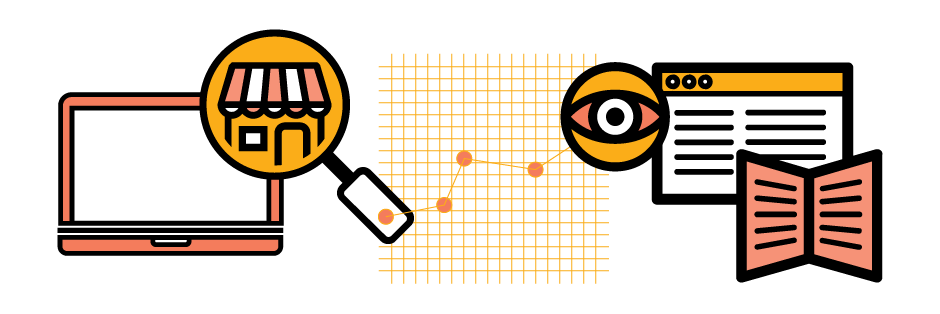
As Matt Cutts famously said,
"LINK BUILDING IS SWEAT PLUS CREATIVITY."
There is no secret shortcut to secure links online.
Thankfully, many in the SEO community are willing to share their experience, expertise, and experiments.
There is a wealth of information online, and many SEOs have compiled lists of their favorite resources.
Here is our recommended list of link building resources:
FURTHER READING
- Linkarati’s Link Building Resources — Page One Power
- Link Building Resources — Point Blank SEO
- Link Building: The Definitive Guide — Backlinko
- Big-Ass List of Link Building Resources — The Link Building Book
- 60+ Link Building Resources — Digital Current
- Top 100+ Link Building Resources — Vertical Measures
FINAL THOUGHTS
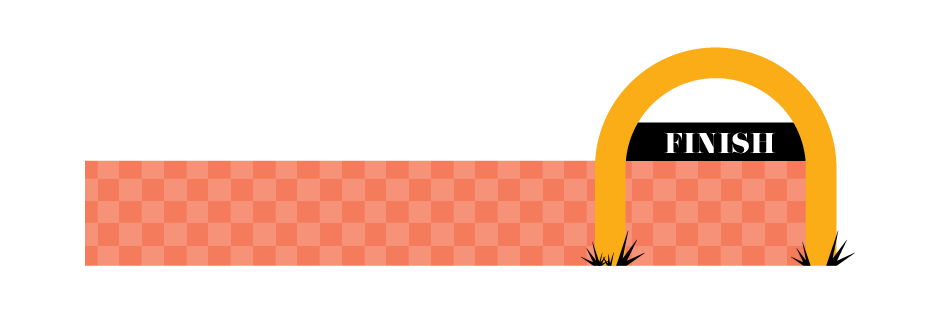
There is no secret shortcut to securing quality links. You'll need to identify how your website adds value to the web, the opportunities that exist within your niche, and secure the links your website deserves.
With a little creativity, research, analysis, and strategy link building can make the difference your website needs.
Every link should be useful for your website, the website linking, and their audience.
Quality links will help your website earn meaningful organic traffic from Google search.
There are many other factors within SEO, but links still remain very integral to any SEO strategy.
Link building is both a science and an art: technical knowledge and analytical skills are necessary, but the defining element is human creativity.
